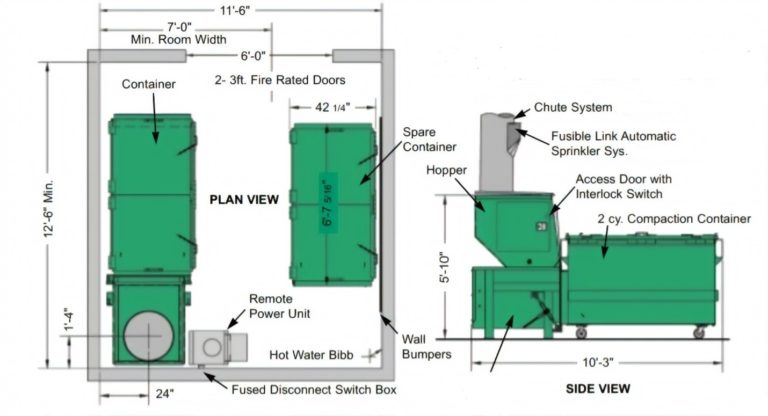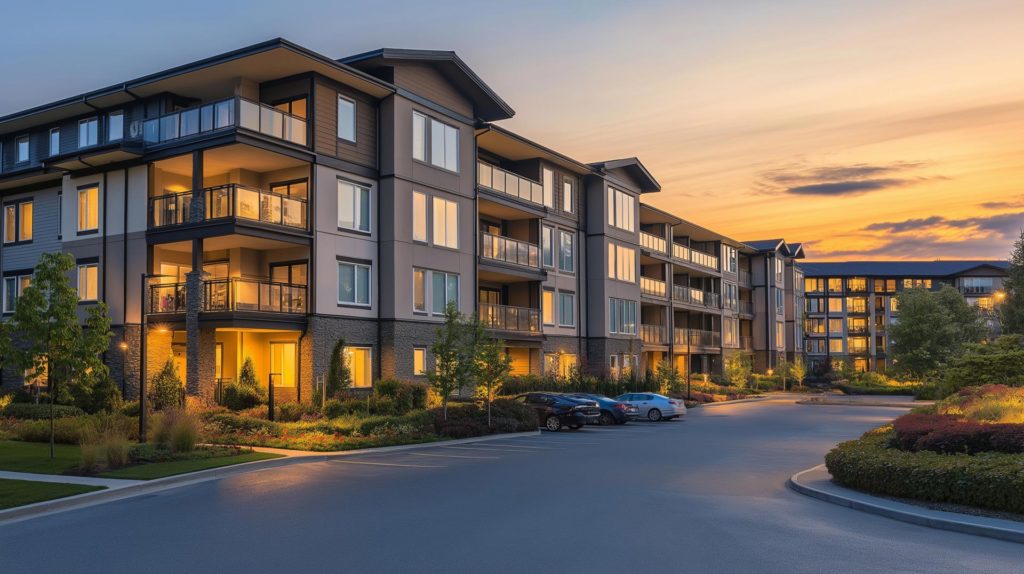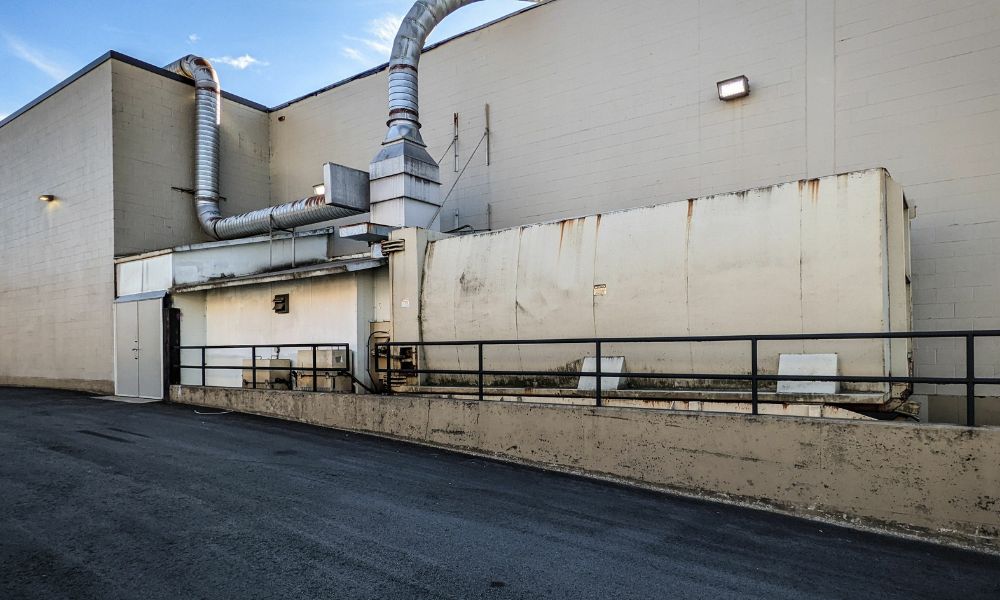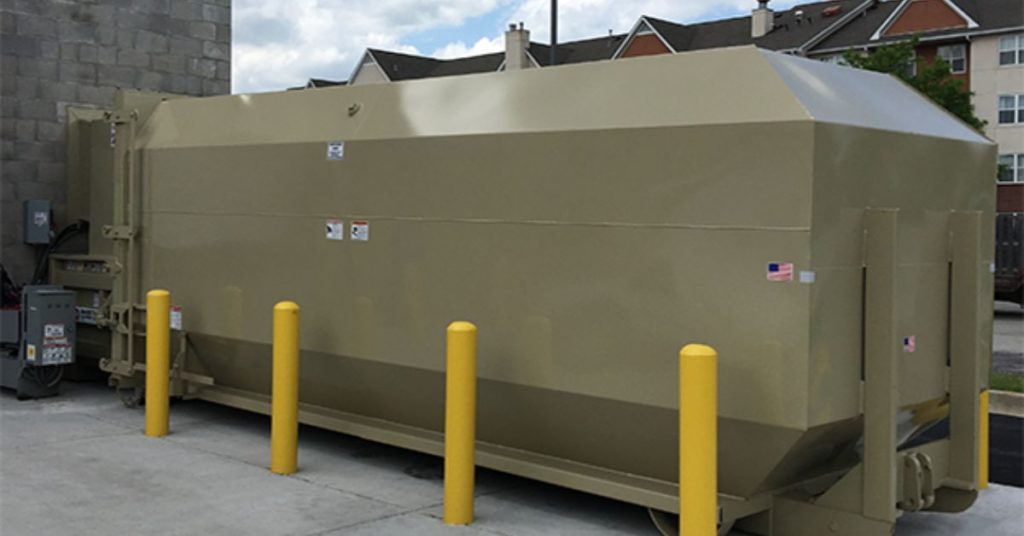As a property manager, you’re burdened with the unglamorous task of managing your apartment community’s waste. It’s a problem that’s gotten even harder of late due to your overwhelming success with keeping the complex leased to capacity. Dealing with scavengers & pests, overflowing dumpsters, and a skyrocketing hauling bill has become quite the challenge. You’re considering renting a trash compactor to address these issues, but you’re a bit unfamiliar with the processes involved in preparing for one. You begin to wonder, “What kind of information would a rep need from me?”. Well, here are a few things they’ll want to know:
Amount of Trash Generated
How much trash does your community generate? The best way to figure this out is to look at your existing trash bills and determine how many cubic yards of garbage you have hauled per week.
Ask Yourself:
- How many containers do I have?
- What’s the size of these containers?
- How many days a week are these containers pulled?
If you currently have six 2-yard containers pulled daily, for example, that equals 84 cubic yards uncompacted per week (6 containers x 2 yards x 7 days = 84 cubic yards uncompacted per week). For a more in-depth example of this situation, check out How To Lower Your Apartment Complexes Waste Bill.
If it is a brand-new complex, you’ll need to make some assumptions. Most people make about .120 cubic yards of waste per week. If your complex has 400 residents, it will likely produce about 48 yards of garbage per week (400 x .120). When calculating this, remember to use the number of residents rather than “units.” If your complex has 120 units, but most of them are 2 or 3 bedrooms, then you’re going to have far more than 120 people living in your complex at capacity. Knowing the amount of waste you generate per week will help your rep diagnose what piece of equipment is best for your property. For more modest complexes, that’s often an apartment compactor, but specific complexes may need larger equipment, assuming there’s ample space.
Type of Trash
What type of material do you plan to put into this compactor? Think of what kind of waste your complex produces. Most likely, this will be typical household trash, but certain items may cause problems depending on how the compactor is fed. Most apartment compactors are chute-fed, so all items that you put into it must be able to fit down the chute. A common item that property managers run into issues with is cardboard boxes. Something like a pizza box will probably not fit down the chute unless it’s been stripped apart into smaller pieces. Make sure to have a plan for these more oversized items, such as a separate container. If there are any plans for recycling or food composting, your rep will want to know about that as well. The more information you can give your rep about your waste, the better.
Location of Trash
Does your waste flow to a central point? If it doesn’t currently, is it possible to make it so that it does? Unless you plan on getting multiple compactors, you’ll want to make sure that this is possible. Once that central point is determined, note where your trash is stored or where you plan to keep it if it’s going to be a different location when the compactor is in place. Compactors require a certain amount of space, so your rep will want to know the location of where your trash is stored. If you have an indoor trash room, you’ll probably only have the space for an apartment compactor. At a minimum, you’ll want your trash room to be at least 12′ 6″ long and 11′ 6″ wide, with a door opening of at least six feet.

If your trash is stored outdoors, this may open up other equipment possibilities, if necessary.
Power
What kind of power supply do you have? Do you have single-phase or three-phase power? Most commercial trash compactors have a three-phase power unit as standard. You can get single-phase 208V or 230V, but there is usually an upcharge.
New or Refurbished
Do you want the equipment to be new or refurbished? Refurbished compaction equipment can save you money because it is generally cheaper than new. That said, be sure the unit won’t be an eyesore at your facility and that the compactor vendor you’re using is qualified with factory-trained technicians for rebuilds and maintenance. If you rent your compaction equipment through Compactor Rentals of America, you can rest assured knowing that any equipment, new or refurbished, will be of the highest quality.
Maintenance on Site
Do you have maintenance technicians on-site? On-site maintenance staff may be able to remedy minor issues with the compactor like the ones mentioned here, but anything more severe you’ll want to have addressed by our factory-trained technicians. A major perk of renting your compaction equipment is that maintenance is included in your contract, so any service needed is entirely free of charge.
Timeline
When would you like to have the compactor installed? Keep in mind that we generally need a 30-day lead time to install the equipment after executing an agreement. Installation can sometimes be sooner; however, depending on client needs and other factors.


